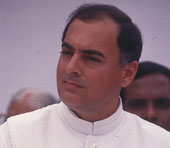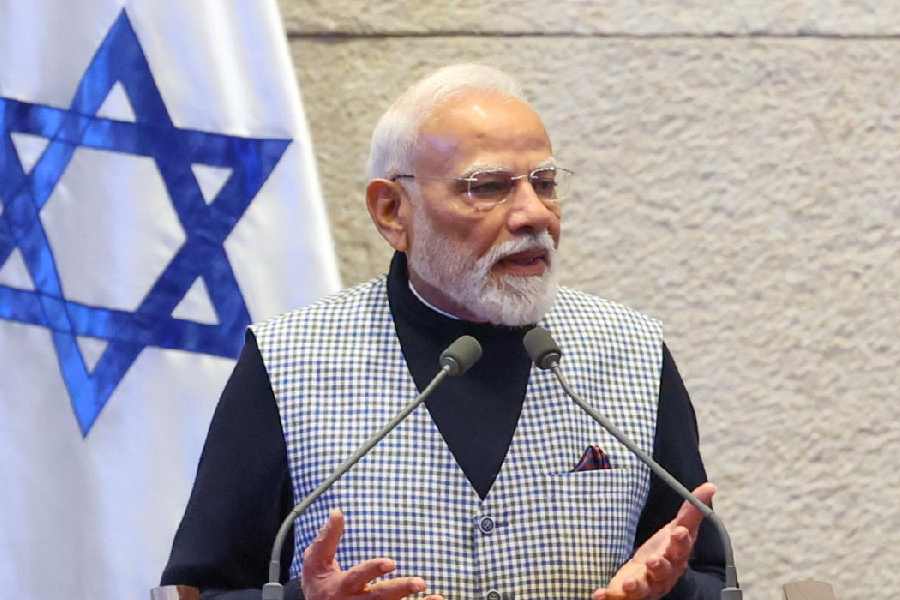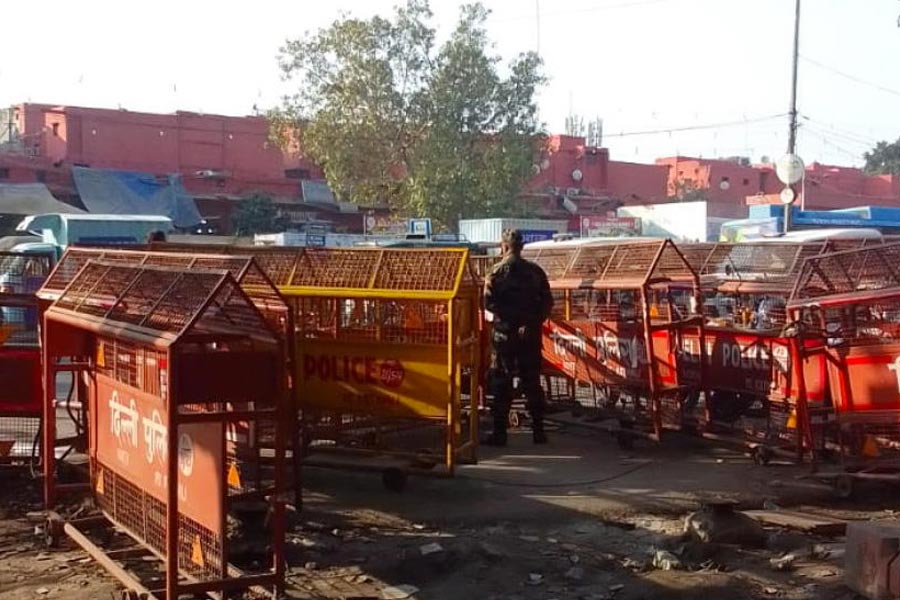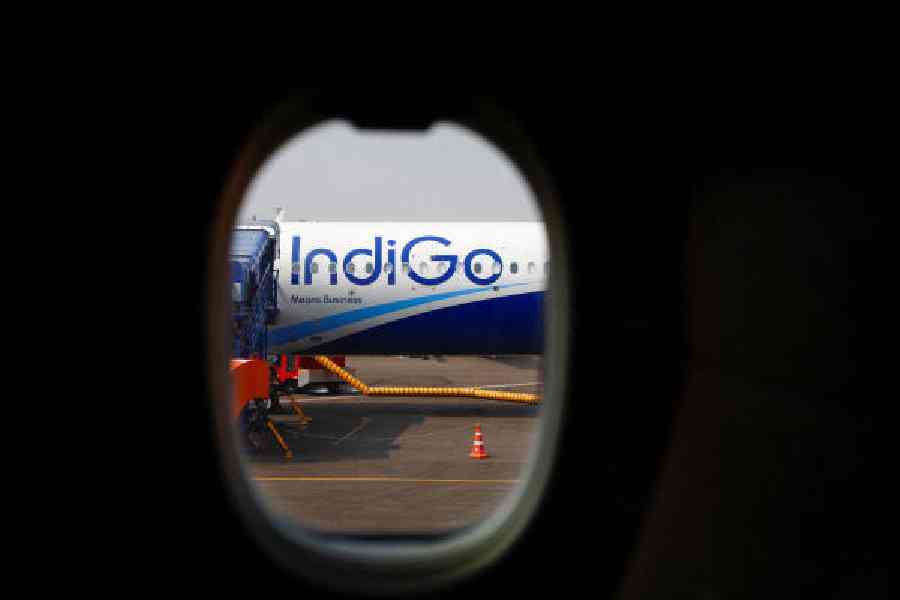|
|
| Assertive |
The South Asian Association for Regional Cooperation often seems to have no more to offer than poverty and politics. But the abrupt cancellation of last weekend?s summit ? not directly India?s doing, but the inevitable outcome of Manmohan Singh?s refusal to attend ? sent out the message that subcontinental cooperation will depend in future on the observance by member nations of the political norms to which India subscribes.
This reverses the convention that neither Saarc as an organization, nor its individual members, ever comment on the internal affairs of any country. It also clearly proclaims India?s right to lay down terms to countries that have so far regarded themselves as equals, not granting India even the position of primus inter pares. Nor will they be alone in resenting and resisting the implications of what looks like a belated assertion of Indian supremacy. The United States of America and China may also react since their strategy has done much to sustain the illusion that a Pakistan that is one-fourth India?s size with one-seventh the population is India?s equal. That became a cornerstone of regional politics long before the nuclear equalizer lent myth some substance.
It is not clear whether the mandarins of South Block thought through their decision before this bid for leadership. They cannot for a moment have feared that Indian delegates to Dhaka would be in danger because of Bangladesh?s deteriorating law and order situation or that turmoil in Nepal would have any impact on the business before the summit. Their only concern was with the political effect that India?s presence might have on internal developments in Bangladesh, Nepal and elsewhere.
Sri Lanka?s Junius Richard Jayewardene stressed this linkage when Saarc was inaugurated 19 years ago. ?India, the largest in every way,? he told the Dhaka gathering, ?larger than all the rest of us combined, can by deeds and words create the confidence among us so necessary to make a beginning.? But India has not always acted on the geopolitical logic of this thesis. The liberation of Bangladesh and Sikkim?s annexation may have projected a new imperium. But the Indian ambassador who prostrated himself before a Nepalese monarch, worshipping him as Vishnu?s avatar, hardly upheld that image. Nor did Rajiv Gandhi when he sent Hussain Mohammed Ershad into transports of joy by promising to involve Nepal in water management discussions until external affairs ministry officials torpedoed the prime ministerial commitment.
India has not responded to powerful anti-Indian forces in Bangladesh and Nepal, but, ironically, it?s the imperial impression that persists. As the dramas unfolded in Dhaka and Kathmandu, more than one correspondent, one from as far away as Washington, referred to the book on Sikkim that I wrote 20 years ago to wonder if another annexation was in the offing. The question flew in the face of law, political usage and the established international order. But the fact that it was asked indicated the perception that spats do not just erupt in the subcontinent, that they are contrived with a political objective in mind. At its most innocent, the question was a reminder both of India?s unsettled relations with all its neighbours and of the responsibility that Jayewardene indicated for guiding a stable region in its harmonious evolution towards a free trade area by next January and an economic union by 2010.
These targets were always a bit of pie in the sky. It will now become immeasurably more difficult to achieve them. Already, voices can be heard in Dhaka arguing against taking part in next Monday?s scheduled trilateral talks to discuss the Myanmar-Bangladesh-India gas pipeline. If Bangladesh does participate, it will be far less accommodating on its three demands for a reduced trade gap, land transit routes to Nepal and Bhutan and hydroelectricity from the two Himalayan kingdoms. The twice-crowned King Gyanendra, too, will try to be difficult. Decisions to send the dalai lama?s staff packing and authorize a Kathmandu-Lhasa bus service may have been coincidental, but they warn that, like his father, he will play off his northern and southern neighbours against each other. India?s huge cultural capital in both countries and its economic clout are of little avail against rulers who are not well disposed.
Any region?s stability demands a balance of power that everyone accepts. The equilibrium that the European Union enjoys, with France and Germany matched with the Netherlands or Luxembourg, may be the ultimate ideal. But south Asia?s only hope of escape from fluctuations lies in the order that has long prevailed in the American continent. Jayewardene?s message was that India stands in relation to other Saarc members exactly like the US vis-?-vis Canada, Mexico, Cuba and other Latin American states.
It has been said that Mikhail Gorbachev was a better democrat than Abraham Lincoln for allowing disgruntled constituent units to go their separate ways instead of fighting a bloody war to maintain national unity. But Lincoln probably understood the compulsions of security and geography better. So did successors who split Colombia to acquire the Panama Canal, added Hawaii, Texas, Alaska, California and New Mexico to the US, enforced the Monroe Doctrine and sent the Soviets off with a flea in the ear when they tried to instal missiles in Cuba.
Even though these actions fall foul of textbook morality, they can be justified on the ground that a nation?s highest obligation is to its permanent interests. That is as true of India today as it ever was of the US. For all that they are equal members of the United Nations, in practice there can be no parity in south Asia. India is not only bigger than all the other six countries combined, as Jayewardene observed, but contiguous with all of them (except the Maldives) while no other states share borders. But the global community would rather not hear these basic facts, seeing India and Pakistan as Siamese twins locked in a weary squabble over Kashmir.
George W. Bush?s war on terrorism merely provided a new bottle for the old wine of priorities that were decided before 1947. The US may not be as blunt now as it was then ? consulting Pakistan?s ambassador on an Indian request for transport aircraft or according Liaquat Ali Khan the same honours as were bestowed on Jawaharlal Nehru ? but the current Washington-Islamabad arms talks confirm that even when promising to delink ties, the US proceeds on the assumption that military capability must be matched. Some American policymakers are probably still convinced that given half the chance, India would gobble up Pakistan. Jayewardene comes to mind again: India must ?by deeds and words? exorcise suspicion.
Leadership does not flow only from demonstrations of firmness. It also calls for trust. That is where tiny Sikkim is the albatross hanging heavily round India?s neck. The acquisition gave India no additional powers on the ground. Nor did it make any difference to the military equation with China. But it was largely responsible for Ziaur Rahman?s original proposal for a south Asian association to protect the rights of smaller countries, which India did not welcome when he mooted it at the non-aligned summit in Colombo the year after Sikkim was annexed.
Great powers cannot expect to be always liked. But they must never be without the means to command respect. A nuclear Pakistan, encouraged by the US and China, sets the tone for the rest of the region where India may have left it too late to assert its own discipline. Having now done so, New Delhi must consider logical follow-up diplomacy to guard its interests without being unfair to any neighbour. India will find itself in an even worse position, its authority completely in tatters, if it is forced to return to Saarc with no resolution of Bangladesh?s communal violence or of Nepal?s struggles with democracy. The summit boycott cannot be an end in itself.












